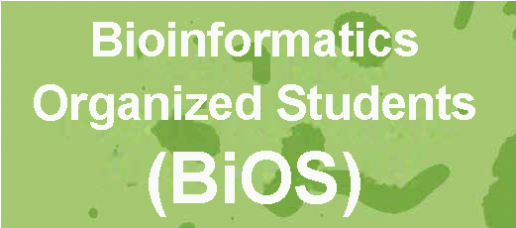The Graduate Program in Bioinformatics offers the Master of Science [MS] degree, with a curriculum created to prepare students for the most cutting-edge industrial positions in the field.
The Program is flexible – students can enroll as full-time and finish the degree in as little as 12 months or enroll as part-time and take courses over a longer period of time. Applications are reviewed on a rolling basis APPLY HERE
BU Bioinformatics Program Merit Scholarships
Tuition assistance is available in the form of MS Merit Scholarships, which provide partial tuition to full-time MS students. These scholarships are awarded at the time of admission and do not require a separate application. These awards are made to both international students and U.S. citizens with an outstanding academic record, and who have demonstrated enthusiasm and knowledge in the field of Bioinformatics.
MS Program Requirements
The master’s degree requires a total of 32 credits. MS candidates must demonstrate mastery of the core subject matter (no lower than a “B” in core courses) to fulfill their degree requirements. Students must also demonstrate a working knowledge of computational methods available to the modern bioinformatician through the successful completion of a 400-hour internship project, followed by a written and oral report which will serve as a master’s thesis. Fulfillment of core course equivalents will be determined based on documented previous academic and/or work experience. If an alternate course has been accepted as a core equivalent, the academic advisor will recommend a courses to fulfill the requirements.
Core Courses
ENG BE 562: Computational Biology: Genomes, Networks, Evolution
The algorithmic and machine learning foundations of computational biology, combining theory with practice are covered. Principles of algorithm design and core methods in computational biology, and an introduction of important problems in computational biology. Hands-on experience analyzing large-scale biological data sets. 4 cr.
OR
ENG BF 528: Applications in Translational Bioinformatics
Bioinformatics is an interdisciplinary field devoted to managing and analyzing largescale biological data, such as the DNA sequence of the human genome, and has become an essential tool in interpreting and translating biological knowledge for use in a clinical setting. This course introduces graduate and upper–level undergraduate students to the principles of bioinformatic analysis applied to translational studies. Application topics will include gene expression analysis, biomarker development, and Genome Wide Association Studies (GWAS). Bioinformatics methods including microarray analysis, short read sequence analysis, biological pathways and geneset enrichment analysis, and Quantitative Trait Loci (QTL) will be covered. Lectures and assignments will be designed around reproducing the results of preselected studies from the literature that exemplify the topics. The primary focus will be using existing software tools and published data to perform analyses, but most tasks will require some programming. 4 cr.
ENG BE 768: Biological Database Systems
Describes relational data models and database management systems; teaches the theories and techniques of constructing relational databases to store various biological data, including sequences, structures, genetic linkages and maps, and signal pathways. Introduces relational database query language SQL and the ORACLE database management system, with an emphasis on answering biologically important questions. Summarizes currently existing biological databases. Describes web-based programming tools to make databases accessible. Addresses questions in data integration and security. The future directions for biological database development are also discussed. 4 cr.
ENG BF 571: Dynamics and Evolution of Biological Networks
This course focuses on mathematical models for exploring the organization, dynamics, and evolution of biochemical and genetic networks. Topics include: introductions to metabolic and genetic networks, deterministic and stochastic kinetics of biochemical pathways; genome-scale models of metabolic reaction fluxes; models of regulatory networks; modular architecture of biological networks. 4 cr.
ENG BF 831: Translational Bioinformatics Seminar
After commencing briefly with general introductory material (published reviews and other relevant back-ground information), students will proceed to examine, discuss and evaluate recent papers that directly illustrate the use of bioinformatics either in pre-clinical or clinical research settings. Papers will be drawn from high-impact journals such as Nature, Science, PNAS, Cell, and Science Translational Medicine. Students will take turns presenting the papers to the class and provide a critical review of each. They will also complete a term paper in the form of a research proposal directed to the goal of using bioinformatics to advance a medical intervention (e.g. prognostic, diagnostic or therapeutic). Brief guest presentations by researchers in BUSM laboratories will be arranged as appropriate. Previous guest facilitators have included faculty from the Department of Biostatistics, Section of Computational Biomedicine, and Department of Mathematics and Statistics as well as industry leaders. 2 cr.
CAS BI 552: Molecular Biology I
Synthesis, structure, and function of biologically important macromolecules (DNA, RNA, and proteins). Regulation and control of the synthesis of RNA and proteins. Introduction to molecular biology of eukaryotes. Discussion of molecular biological techniques, including genetics and recombinant DNA techniques. 4 cr.
OR
ENG BF 751: Molecular Biology and Biochemistry for Bioinformatics
Modern research in the life sciences is an increasingly interdisciplinary endeavor where new fields of study have developed at the interfaces of biology, chemistry, physics, mathematics, and computer science. In many instances, the development of these new fields goes hand in hand with development of new experimental approaches to surveying the content of the cell. While, traditional molecular cell biology and biochemistry courses often focus on the basic details of cell physiology and macromolecular (DNA, lipid, protein) structures, they too often neglect the quantitative aspects of number, scale, forces, etc. that are crucial to providing a larger context within living systems. This course aims at reframing the basic concepts of cell and molecular biology in a quantitative context and providing a basic overview of some of the key approaches used to develop a quantitative framework inside the cell. How this detailed information can then be applied to bioinformatics research problems will also be explored. 4 cr.
Internship Projects
MS students in the BU Bioinformatics Program have completed internships at more than 100 labs, hospitals, universities and biotech companies, including New England Biolabs, the MIT Lincoln Laboratory, the Hospital Corporation of America, Novartis, Takeda, Biogen and the Bioinformatics HUB, a BU pilot project started by Adam Labadorf, a 2015 Bioinformatics PhD alum. Read more about the internship projects at the HUB here.




